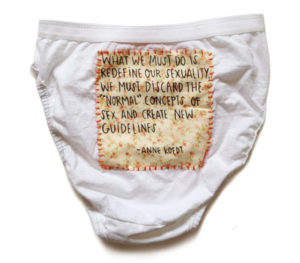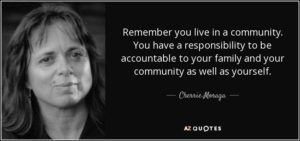This weeks readings where by far my favorite. I love going into “taboo” subjects that tend to appall ignorant people. As a Chicana heterosexual female I tend to wonder into the hardships that the LGBT community goes through. I grew up in a very strict home where being anything else then straight was prohibited. Actually, it was not even supposed to come up. We where not allowed to talk about same sex relationship however, our drunk uncles where allowed to goof around with it and make fun of each other for being “gay.” Since a young age I wondered why people would make fun of people who fell in love with certain people. Growing up Chicano is hard enough then we add being queer makes things all that more difficult. Not only are people rejected by society but they have to fight against their family and their culture. Thankfully, in this day and age we are more open and a bit more accepting. People have raised their voices in the ongoing battle of equality. Even though there are still so many things to fight against like Carla Trujillo mentioned in “Chicana Lesbians: Fear Loathing in the Chicano Community,” there are several things that the Chicano LGBT go through. For example, accepting their sexuality, motherhood, religion and several other things. It isn’t a simple struggle. I found an article called, :LGBT Latino Artists Threatened After San Francisco’s Gay Cholo Chicano Mural Defaced”. It is about a mural that was vandalized only because it showed two cholo/a couples being in love. This obviously threatened the cholos traditional machismo by being showcased in a different position. Being gay in the Chicano community is hard but people ignorance will never make it easy. The article mentioned something that went well with the reading of Carla Trujillo, “It’s hard to be gay and lesbian and still be in this Chicano culture,” says Paul. “But [being transgender] is a new thing that [Chicanos] haven’t even touched on.” We need to start touching on these subjects because they aren’t just conversations it is people lives. Who are we to deny everyone happiness? I recommend to take a second and check it out.



 In Next of Kin, Rodriguez emphasizes on the role that gay men take as members of society. An important point that Rodriguez makes is that gay men share similar conflict to lesbian women. They both have to adapt to a life where family reject them because they do not conform to the “norms”. Rodriguez encourages gay men to speak up about issues of sexuality, and to speak up against subordination within the family. Rodriguez also discusses how femininity is looked down upon.
In Next of Kin, Rodriguez emphasizes on the role that gay men take as members of society. An important point that Rodriguez makes is that gay men share similar conflict to lesbian women. They both have to adapt to a life where family reject them because they do not conform to the “norms”. Rodriguez encourages gay men to speak up about issues of sexuality, and to speak up against subordination within the family. Rodriguez also discusses how femininity is looked down upon.